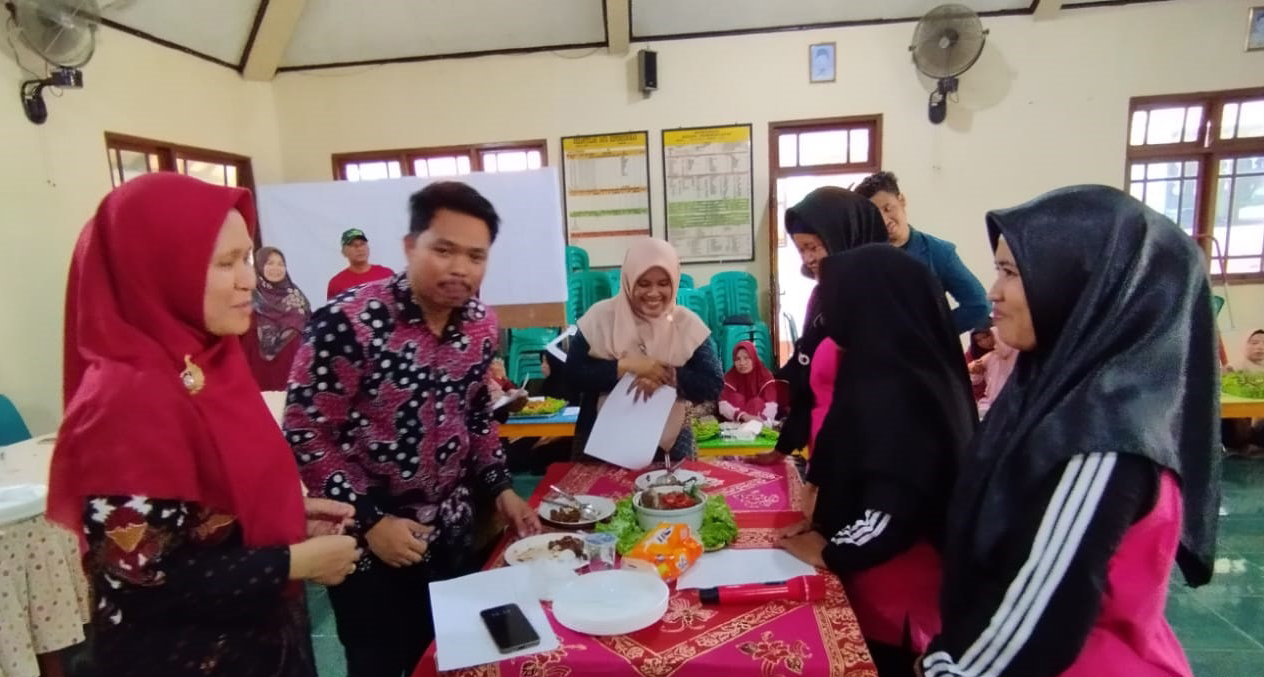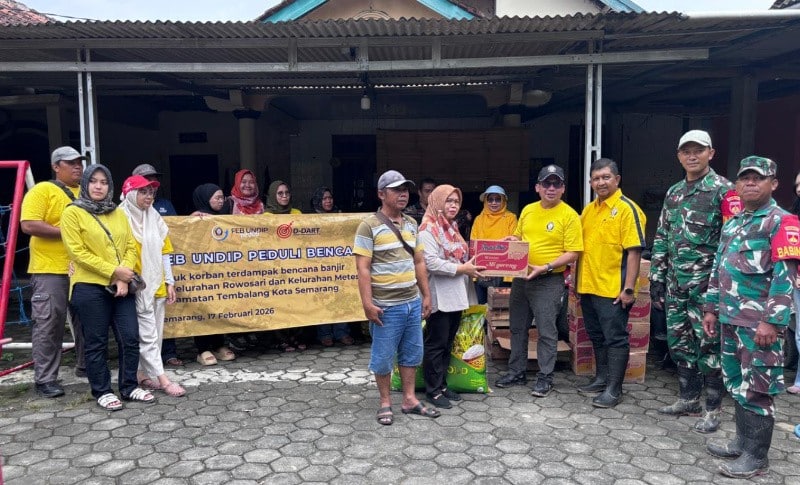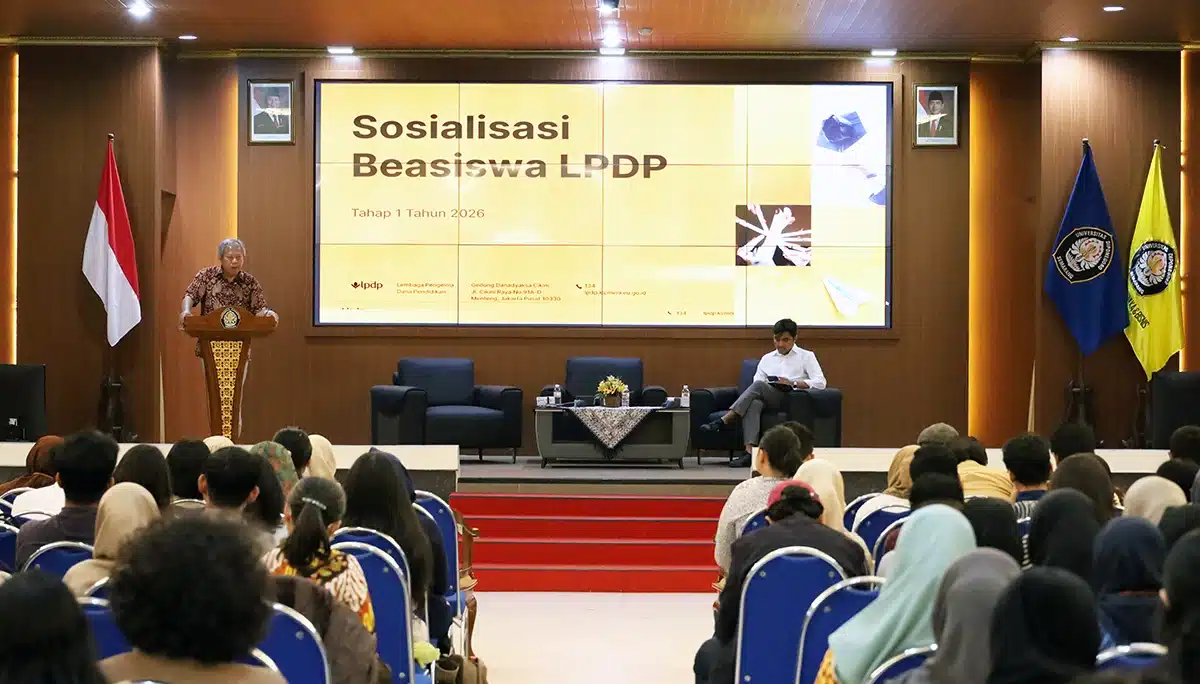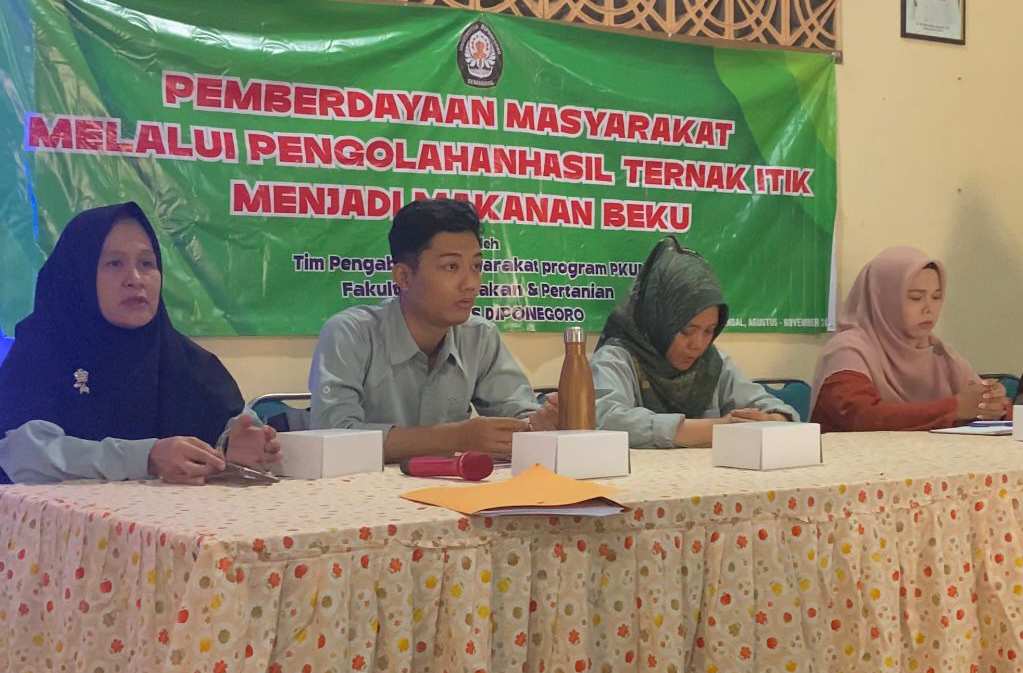Turunrejo Village, Brangsong District, Kendal Regency, is a village that has a fairly large duck population. In order to increase the productivity of ducks in the village, the community service team from the Faculty of Animal and Agricultural Sciences, Diponegoro University, carried out activities, namely Assistance to the Farmers in the Application of Synbiotics and the Production of Frozen Food from Ducks to Increase the Income of Duck Farmers in Kendal Regency.
The Community Service Team chaired by Dr. Istna Mangisah, S.Pt., M.P. has been carrying out activities since 2022, namely, efforts have been made to increase duck productivity through:
- Training in making fermented feed.
- Maggot Cultivation Training and Practice.
- Making Maggot cages.
- Training and manufacturing of synbiotics.
- Demonstration of synbiotic application in ducks.
In 2023, further activities will be carried out in the form of increasing income through product diversification into frozen food and internet-based marketing, namely by:
- Counseling and training on various processed ducks into frozen food.
- Food safety education for frozen food from ducks.
- Training on product packaging design and branding.
- Procurement of equipment for processing (freezers and vacuum equipment).
- Internet marketing training.
The community service team from the Faculty of Animal and Agricultural Sciences Undip conveyed that “Diversification of duck farming products into various quality and halal frozen foods contributes to increasing the selling value of the products. Frozen food is food that is popular with all ages, easy to get and safe. The Covid-19 pandemic has changed lifestyles. Changes in people’s lifestyles include shifts in food consumption patterns. This change also caused the supply of food at the household level to begin to shift from initially using fresh food to switching partly to frozen food products. Frozen food products made from duck meat are now starting to be widely marketed and are opening up business opportunities for the community.” This PKUM activity involved 5 students from various study programs and became a thematic community service (KKN) activity for these students.
Food safety standards for frozen food products and licensing of frozen processed products were also topics discussed in this activity. In this case, Dr. Rafli Zulfa Kamil, S.TP, was present to provide enlightenment to producers. It is conveyed that ready-to-eat processed food that is temporarily stored at freezing temperatures during distribution with a shelf life of less than 7 (seven) days and is produced by order is not required to have a distribution permit, either from the POM Agency or from the district/city regional government. Meanwhile, frozen processed food and ready-to-eat processed food that is stored frozen with a shelf life of 7 (seven) days or more and is mass-produced must have a Distribution Permit from the POM Agency, not from the district/city regional government.
The process of storing processed food at freezing temperatures (minimum -18°C) is one method of extending the product’s shelf life by inhibiting microbial growth as well as enzymatic and chemical reactions so that the product remains safe and of good quality. To maintain the cold chain, both types of frozen processed food and ready-to-eat processed food must comply with Good Processed Food Distribution Methods (CPerPOB).
In order to increase community creativity in processing duck meat, PKUM activities also held a duck cooking competition, which was attended by 16 RT, and displayed various superior menus. The harmonious synergy between the community, government and academics is intended to provide significant support for efforts to develop duck farming and increase community income, especially in Turunrejo Village, Kendal Regency.










